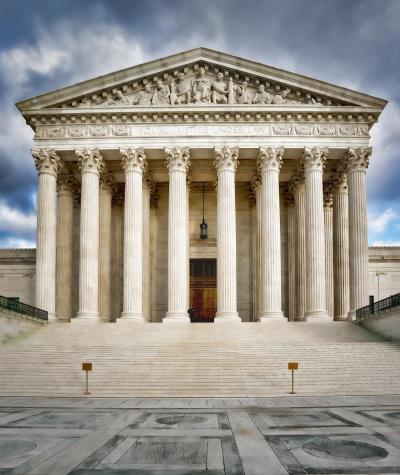Campaign Legal Center (CLC) has long been calling for ethics reform at the U.S. Supreme Court. After all, justices are appointed for life, but there is little structure in place to hold them accountable when ethics concerns arise and little guidance in place for the justices to follow.
Following a growing national concern (and multiple scandals impacting many of the justices) throughout 2023, SCOTUS released a new code of ethics by the Supreme Court on November 13. Unfortunately, the "code" fell far short of what CLC and others calling for reform had hoped for. Rather than setting clear guidelines and establishing mechanisms to ensure accountability, the code merely lays out principles that justices ‘should,’ but are not required to abide by.
The day after the code was unveiled, CLC Legal Counsel for Ethics Danielle Caputo weighed in with a piece in Bloomberg Law, pointing out that, "for a code to truly regulate conduct, its terms must be mandatory," and emphasizing that it is vital for Congress to continue working to hold SCOTUS accountable, given that they seem incapable or unwilling to do so themselves. Danielle was invited to share her thoughts on the new "code" alongside Professor Michael J. Broyde of Emory University School of Law and Professor Charles Gardner Geyh of Indiana University Maurer School of Law. You can read Danielle's piece here.
CLC president and founder Trevor Potter also weighed in, via an Op-Ed in The Hill, which you can read here. In his piece, he calls the code "alarmingly hollow" - pointing out that, lacking dedicated body responsible for enforcement, an ethics code lacks teeth. He concludes by calling on Congress to regulate the high court and highlighting legal avenues for doing so.
Moving forward, CLC is committed to ensuring that the highest court in our nation is held to at least the same ethical standards as the other branches of government and lower courts, and that justices are held accountable when they violate those standards. This is vital for public trust in our democracy.
